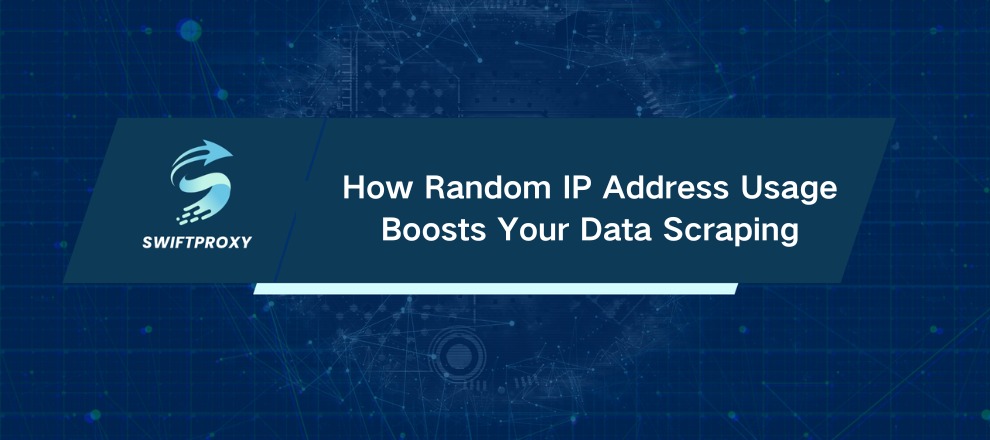How Random IP Address Usage Boosts Your Data Scraping

Imagine that billions of devices online, all shouting for attention. How does the internet keep track of them? Through IP addresses. Each one is like a unique mailing address for your device in the vast digital world. But sometimes, you don't want your real address known. You want to be anonymous or constantly changing. Why? Because in the world of web scraping, digital privacy, or geo-blocks, a fixed IP can become your biggest enemy.
Let's dive into the nuts and bolts of random IP generation and how it can turbocharge your operations — whether you're collecting data, bypassing restrictions, or protecting your privacy.
What Exactly Is An IP Address
Here's the quick rundown:
IP = Internet Protocol: A set of rules allowing devices to communicate.
Address: A unique identifier for each device on the internet.
IPv4 and IPv6: The most common versions. IPv4 looks like 182.16.255.1. IPv6 is longer, using both letters and numbers, like 2001:db8::1234.
Every time you connect online, your device gets an IP. It's your digital footprint — your online "return address." But unlike your home address, sometimes you want that footprint to vanish or shift.
Why Bother Generating Random IP Address
Here's where it gets juicy. Your static IP is a double-edged sword.
Web scraping: Websites identify and block bots by tracking IPs. Scrape once, get banned forever.
Geo-restrictions: Want to see content locked behind country borders? Change your IP's location.
Privacy: Your IP tracks you everywhere online. Randomize it, and suddenly you're much harder to profile.
Security: Malicious actors can target your IP for attacks like DDoS. Change it often, reduce risk.
So, flipping your IP isn't just a trick — it's a necessity.
How to Effectively Generate Random IP Address
No silver bullet here — it depends on your needs. Let's break down the top tools and approaches.
1. VPN
VPNs mask your IP by routing your traffic through their servers. Great for privacy and geo-unlocking.
Pro: User-friendly, fast setup.
Con: Not built for scale. One VPN account = one IP. Running hundreds of scraping bots? No chance.
2. Dynamic IP from ISP
Your internet provider can assign a new IP each time you reconnect.
Pro: Simple and free.
Con: You're stuck with one IP at a time, no control over location, no rotation speed.
3. Tor Browser
Tor bounces your connection through multiple relays to hide your IP.
Pro: Hard to track, excellent privacy.
Con: Sluggish speeds, complicated setup, can break some web functions.
4. Public Wi-Fi
Every user gets a new IP on public hotspots.
Pro: Instant IP change.
Con: Dangerous for sensitive info. Open networks are hackers’ playgrounds.
The Real Power of Proxies for Random IPs
If you want serious control and scale, proxies are the way to go. Here's the lowdown:
Rotating Proxies: Your IP switches constantly behind the scenes. Perfect for large-scale scraping. Just watch out for shady providers. Choose quality.
ISP Proxies: Blend residential IPs with datacenter speed. Good balance.
Datacenter Proxies: Fast and cheap but easy to spot and block.
Residential Proxies: Real user IPs assigned from homes worldwide. Best for stealth and reliability.
Why Swiftproxy Stands Out
If you want proxies that actually work, Swiftproxy has nailed it:
Global reach: IPs from major cities worldwide, helping you bypass geo-blocks effortlessly.
User-friendly and powerful: Easy dashboard for beginners, API for advanced users.
Fewer CAPTCHAs, more success: Our residential proxies mimic real users, bypassing reCAPTCHA and Cloudflare with ease.
Reliability: 99.5% uptime, low latency, and a high success rate mean your data pipeline stays strong.
Conclusion
Randomizing your IP isn't just about hiding; it's about unlocking new possibilities. From scraping massive datasets to protecting your digital identity and accessing global content — the right approach can make all the difference.

















































